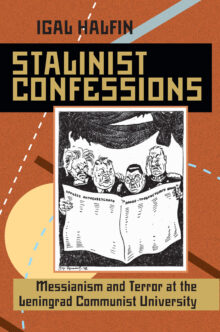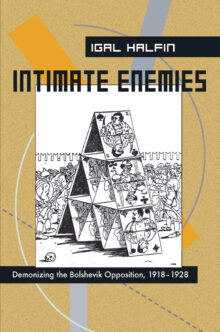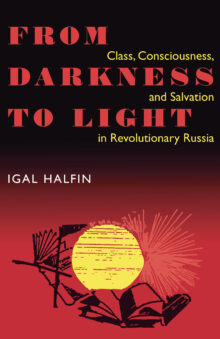
Igal Halfin
Igal Halfin is senior lecturer in the department of history at Tel Aviv University. He is the author of Intimate Enemies: Demonizing the Bolshevik Opposition, 1918-1928; From Darkness to Light: Class, Consciousness, and Salvation in Revolutionary Russia; and Terror in My Soul: Communist Autobiographies on Trial. Halfin is also editor of Language and Revolution: The Making of Modern Political Identities.
Stalinist Confessions
Messianism and Terror at the Leningrad Communist University
During Stalin's Great Terror, accusations of treason struck fear in the hearts of Soviet citizens-and lengthy imprisonment or firing squads often followed. Many of the accused sealed their fates by agreeing to confessions after torture or interrogation by the NKVD. Some, however, gave up without a fight.
In Stalinist Confessions, Igal Halfin investigates the phenomenon of a mass surrender to the will of the state. He deciphers the skillfully rendered discourse through which Stalin defined his cult of personality and consolidated his power by building a grassroots base of support and instilling a collective psyche in every citizen. By rooting out evil (opposition) wherever it hid, good communists could realize purity, morality, and their place in the greatest society in history. Confessing to trumped-up charges, comrades made willing sacrifices to their belief in socialism and the necessity of finding and making examples of its enemies.
Halfin focuses his study on Leningrad Communist University as a microcosm of Soviet society. Here, eager students proved their loyalty to the new socialism by uncovering opposition within the University. Through their meetings and self-reports, students sought to become Stalin's New Man.
Using his exhaustive research in Soviet archives including NKVD records, party materials, student and instructor journals, letters, and newspapers, Halfin examines the transformation in the language of Stalinist socialism. From an initial attitude that dismissed dissent as an error in judgment and redeemable through contrition to a doctrine where members of the opposition became innately wicked and their reform impossible, Stalin's socialism now defined loyalty in strictly black and white terms. Collusion or allegiance (real or contrived, now or in the past) with “enemies of the people” (Trotsky, Zinoviev, Bukharin, Germans, capitalists) was unforgivable. The party now took to the task of purging itself with ever-increasing zeal.
Intimate Enemies
Demonizing the Bolshevik Opposition, 1918-1928
Intimate Enemies is a brilliant study of the transformation of Bolshevik Party ideology, language, and power relations during the crucial period leading up to Stalin's seizure of power. Combining extensive research in recently opened Soviet archives with an insightful rereading of intra-Party struggles, Igal Halfin uncovers this evolution in the language of Bolshevism. This language defined the methods for judging true party loyalty-in what Halfin describes as an examination of the 'hermeneutics of the soul,' and became the basis for prosecuting the Party's enemies, particularly the “intimate enemies” within the Party itself. Halfin argues that Bolshevism-which claimed sole access to truth and morality-ultimately demonized its enemies, and became in effect a theology that facilitated a monumental power shift.
From Darkness To Light
Class, Consciousness, & Salvation In Revolutionary
In this interdisciplinary and controversial work, Igal Halfin takes an original and provocative stance on Marxist theory, and attempts to break down the divisions between history, philosophy, and literary theory.



